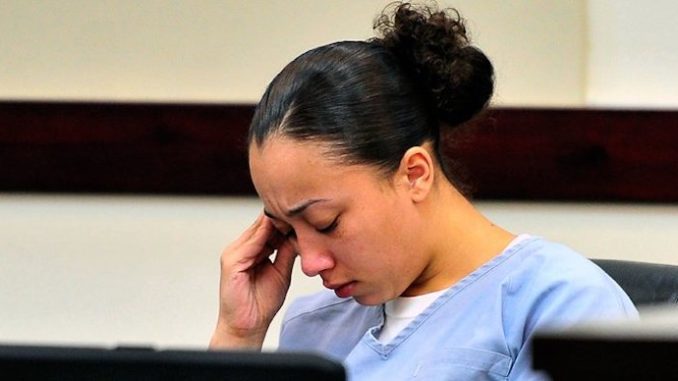
The Tennessee Supreme Court has ruled that a woman who killed a man in self-defense when she was a child sex slave must serve more than 50 years in prison before she is eligible for parole.
Cyntoia Brown was convicted of first-degree murder in 2004 for the death of Johnny Mitchell Allen — a man who purchased her as a sex slave when she was an underage teen. Brown said the reason she killed Allen was due to fearing for her own life after discovering a gun in his room.

BYPASS THE CENSORS
Sign up to get unfiltered news delivered straight to your inbox.
You can unsubscribe any time. By subscribing you agree to our Terms of Use
Latest Video
In the trial, Brown said she resisted Allen’s sexual advances after discovering the weapon and when Allen reached under his bed during the altercation, she reached into her purse, grabbed her gun, and shot him in self-defense.
State prosecutors told a different tale which involved a plot by the child sex slave to go to Allen’s house with the intention of robbing and killing the 43-year-old Nashville native.
In spite of Brown’s defense, she was found guilty of first-degree murder and sentenced to life in prison.

GritPost reports: Because she was sentenced to life in prison after July 1st, 1995, Tennessee State Law states that anyone sentenced to life in prison must be incarcerated a minimum of 51 years before coming up for a parole hearing.
The Tennessee Supreme Court’s five justices unanimously ruled against Brown, who appealed the sentence because she was a juvenile at the time she committed the crime, which would make her sentence unconstitutional based on a 2012 ruling by the U.S. Supreme Court that says juvenile offenders can’t be given life sentences without the possibility of parole.
The court responded by noting that Brown was only given a life sentence — not a life sentence without the possibility of parole — which invalidates Brown’s lawsuit.
Brown’s cause has gotten the attention of numerous celebrities such as Kim Kardashian West and Rihanna, who have advocated for her to be freed from jail due to the circumstances of her case. The story went viral on Twitter — where users used the hashtag #FreeCyntoiaBrown to spread the word about her case and plead for mercy on her behalf.
During a clemency hearing in May, The Tennessee Board of Parole was split three different ways when a recommendation was given to Governor Bill Haslam (R). Two voted for clemency, two voted against it, and two voted to reduce her eligibility for parole to 25 years.
The case is now with the U.S. Sixth Circuit Court of Appeals, which asked Tennessee’s Supreme Court to weigh-in on the matter.


